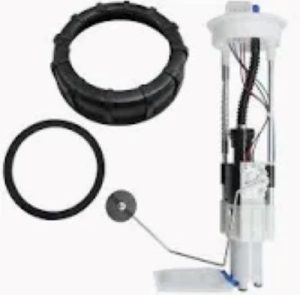Modern direct injection engines are dependant on high-pressure fuel pumps to get the job done, feeding fuel at levels much higher than established fuel systems to improve combustion efficiency. For gasoline direct injection (GDI) engines, these pumps can produce between 500 and 2,500 psi of pressure while on diesel common rail systems they pump pressures in excess of 30,000 psi. High pressure results in finer atomization of the fuel which helps efficient combustion, good emission and improved mileage.
A low-pressure fuel pump delivers the gas from the tank to a high-pressure fuel pump that works with the injectors in dispensing fuel. A high-pressure pump then increases the fuel pressure to generate the needed pressure for feeding to the fuel injectors. These injectors spray the fuel directly into the combustion camber to mix with air for ignition. It not only increases power output but it also cuts fuel consumption by as much as 15 percent while at the same time improves engine response through fine-tuning of fuel delivery.
This includes high-pressure fuel pumps that are used in both gasoline engines and diesels, particularly those in the latter category engineered to meet strict emission standards such as Euro 6. A new class of high-pressure pumps for automotive use is produced by manufacturers such as Bosch and Denso, which has an eye toward long-term life and fuel system reliability. While a decent pump can provide over 100,000mi of maintenance-free use, failure will leave you with no power and starting and idle problems. The extra reliability can generate some extra life, like regularly changing fuel filter.

Look at Volkswagen, for instance: In 2015, vehicles with its diesel engines were recalled because high-pressure fuel pumps might have failed prematurely. When Pumps Fail, and the Engine Starves The results can be dramatic: Fuel starvation means poor performance and possibly damage to the engine itself. This factor of ensuring that the fuel pump is working at an appropriate pressure range in order to get best out of the engine, due to which surge tank setup done.
Fuel Delivery Systems: Recognizing the fact that fuel delivery systems are crucial for better fuel efficiency, Elon Musk had also mentioned this in one of his articles detailing how improvements in this will contribute to a more efficient car. Modern engines especially those found in hybrid and turbocharged vehicles and their requirement for fuel precision demand high-pressure pumps.
To learn more about high-pressure pumps and their function within fuel systems, go to Fuel Pump There you will find a wide range of performance and reliability options for delivering fuel>